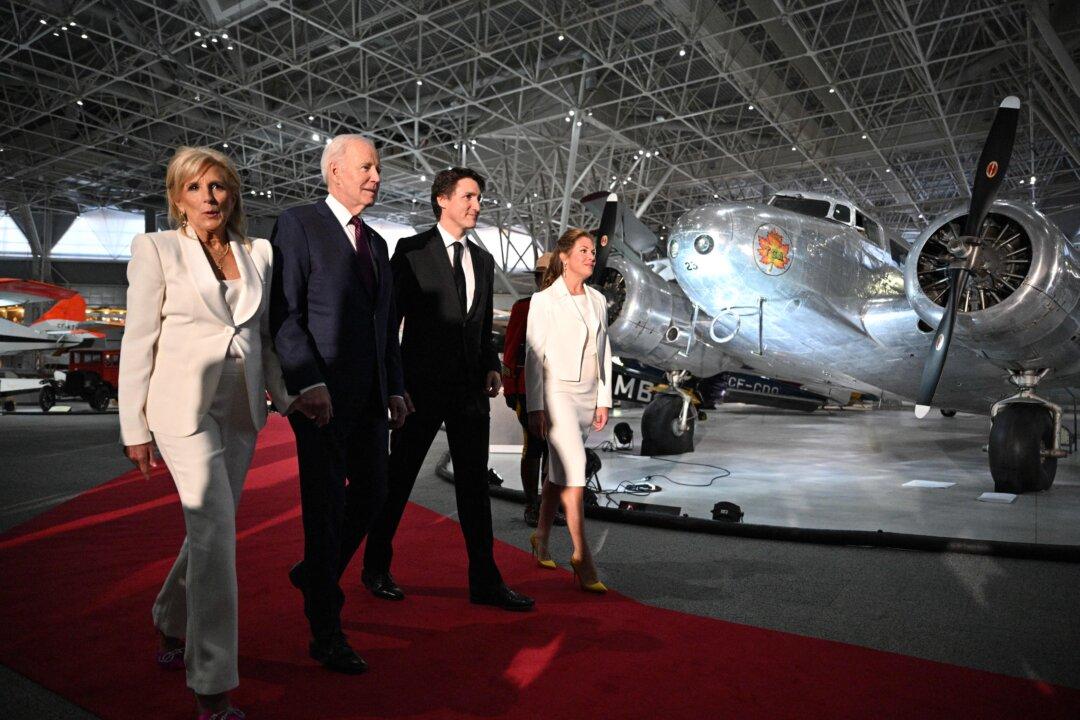The U.S.–Canada border was a widely discussed topic as U.S. President Joe Biden and Canadian Prime Minister Justin Trudeau got together for bilateral meetings in Ottawa, Canada, and Biden addressed the Canadian Parliament before the two leaders held a joint news conference on a busy March 24.
The two leaders announced that as of March 25, asylum-seekers at unofficial border crossing points between the two countries would be turned back. The move follows years of migrants making unsanctioned crossings at places such as Roxham Road, which connects New York state and the province of Quebec, to make asylum claims. The flow of migrants had surged in recent months.





